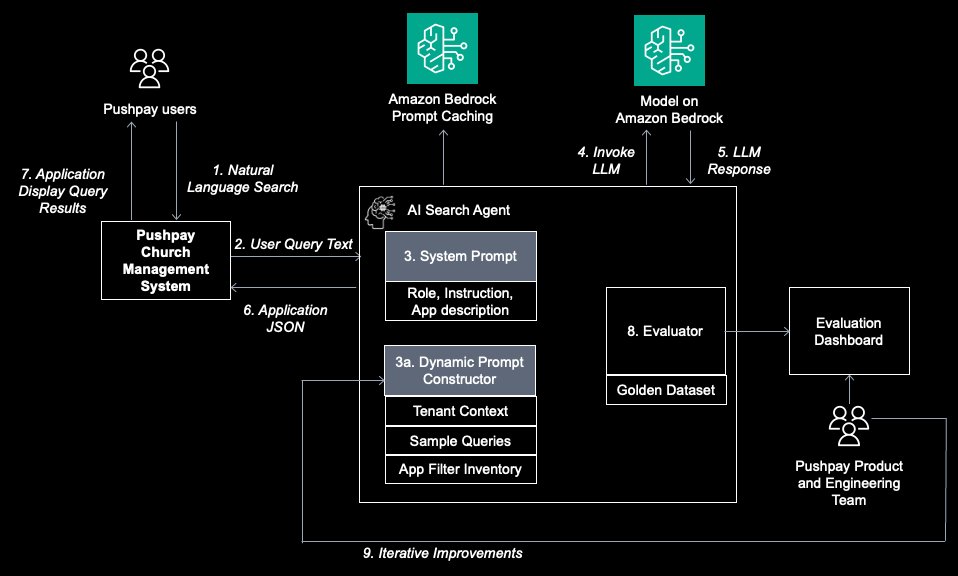This post is co-written with Javier Beltrán, Ornela Xhelili, and Prasidh Chhabri from Aetion.
For decision-makers in healthcare, it is critical to gain a comprehensive understanding of patient journeys and health outcomes over time. Scientists, epidemiologists, and biostatisticians implement a vast range of queries to capture complex, clinically relevant patient variables from real-world data. These variables often involve complex sequences of events, combinations of occurrences and non-occurrences, as well as detailed numeric calculations or categorizations that accurately reflect the diverse nature of patient experiences and medical histories. Expressing these variables as natural language queries allows users to express scientific intent and explore the full complexity of the patient timeline.
Aetion is a leading provider of decision-grade real-world evidence software to biopharma, payors, and regulatory agencies. The company provides comprehensive solutions to healthcare and life science customers to rapidly and transparently transforms real-world data into real-world evidence.
At the core of the Aetion Evidence Platform (AEP) are Measures—logical building blocks used to flexibly capture complex patient variables, enabling scientists to customize their analyses to address the nuances and challenges presented by their research questions. AEP users can use Measures to build cohorts of patients and analyze their outcomes and characteristics.
A user asking a scientific question aims to translate scientific intent, such as “I want to find patients with a diagnosis of diabetes and a subsequent metformin fill,” into algorithms that capture these variables in real-world data. To facilitate this translation, Aetion developed a Measures Assistant to turn users’ natural language expressions of scientific intent into Measures.
In this post, we review how Aetion is using Amazon Bedrock to help streamline the analytical process toward producing decision-grade real-world evidence and enable users without data science expertise to interact with complex real-world datasets.
Amazon Bedrock is a fully managed service that provides access to high-performing foundation models (FMs) from leading AI startups and Amazon through a unified API. It offers a wide range of FMs, allowing you to choose the model that best suits your specific use case.
Aetion’s technology
Aetion is a healthcare software and services company that uses the science of causal inference to generate real-world evidence on the safety, effectiveness, and value of medications and clinical interventions. Aetion has partnered with the majority of top 20 biopharma, leading payors, and regulatory agencies.
Aetion brings deep scientific expertise and technology to life sciences, regulatory agencies (including FDA and EMA), payors, and health technology assessment (HTA) customers in the US, Canada, Europe, and Japan with analytics that can achieve the following:
Optimize clinical trials by identifying target populations, creating external control arms, and contextualizing settings and populations underrepresented in controlled settings
Expand industry access through label changes, pricing, coverage, and formulary decisions
Conduct safety and effectiveness studies for medications, treatments, and diagnostics
Aetion’s applications, including Discover and Substantiate, are powered by the AEP, a core longitudinal analytic engine capable of applying rigorous causal inference and statistical methods to hundreds of millions of patient journeys.
AetionAI, Aetion’s set of generative AI capabilities, are embedded across the AEP and applications. Measures Assistant is an AetionAI feature in Substantiate.
The following figure illustrates the organization of Aetion’s services.
Measures Assistant
Users build analyses in Aetion Substantiate to turn real-world data into decision-grade real-world evidence. The first step is capturing patient variables from real-world data. Substantiate offers a wide range of Measures, as illustrated in the following screenshot. Measures can often be chained together to capture complex variables.
Suppose the user is assessing a therapy’s cost-effectiveness to help negotiate drug coverage with payors. The first step in this analysis is to filter out negative cost values that might appear in claims data. The user can ask AetionAI how to implement this, as shown in the following screenshot.
In another scenario, a user might want to define an outcome in their analysis as the change in hemoglobin over successive lab tests following the start of treatment. A user asks Measures Assistant a question expressed in natural language and receives instructions on how to implement this.
Solution overview
Patient datasets are ingested into the AEP and transformed into a longitudinal (timeline) format. AEP references this data to generate cohorts and run analyses. Measures are the variables that determine conditions for cohort entry, inclusion or exclusion, and the characteristics of a study.
The following diagram illustrates the solution architecture.
Measures Assistant is a microservice deployed in a Kubernetes on AWS environment and accessed through a REST API. The data transmitted to the service is encrypted using Transport Layer Security 1.2 (TLS). When a user asks a question through the assistant UI, Substantiate initiates a request containing the question and previous history of messages, if available. Measures Assistant incorporates the question into a prompt template and calls the Amazon Bedrock API to invoke Anthropic’s Claude 3 Haiku. The user-provided prompts and the requests sent to the Amazon Bedrock API are encrypted using TLS 1.2.
Aetion chose to use Amazon Bedrock for working with large language models (LLMs) due to its vast model selection from multiple providers, security posture, extensibility, and ease of use. Anthropic’s Claude 3 Haiku LLM was found to be more efficient in runtime and cost than available alternatives.
Measures Assistant maintains a local knowledge base about AEP Measures from scientific experts at Aetion and incorporates this information into its responses as guardrails. These guardrails make sure the service returns valid instructions to the user, and compensates for logical reasoning errors that the core model might exhibit.
The Measures Assistant prompt template contains the following information:
A general definition of the task the LLM is running.
Extracts of AEP documentation, describing each Measure type covered, its input and output types, and how to use it.
An in-context learning technique that includes semantically relevant solved questions and answers in the prompt.
Rules to condition the LLM to behave in a certain manner. For example, how to react to unrelated questions, keep sensitive data secure, or restrict its creativity in developing invalid AEP settings.
To streamline the process, Measures Assistant uses templates composed of two parts:
Static – Fixed instructions to be used with user questions. These instructions cover a broad range of well-defined instructions for Measures Assistant.
Dynamic – Questions and answers are dynamically selected from a local knowledge base based on semantic proximity to the user question. These examples improve the quality of the generated answers by incorporating similar previously asked and answered questions to the prompt. This technique models a small-scale, optimized, in-process knowledge base for a Retrieval Augmented Generation (RAG) pattern.
Mixedbread’s mxbai-embed-large-v1 Sentence Transformer was fine-tuned to generate sentence embeddings for a question-and-answer local knowledge base and users’ questions. Sentence question similarity is calculated through the cosine similarity between embedding vectors.
The generation and maintenance of the question-and-answer pool involve a human in the loop. Subject matter experts continuously test Measures Assistant, and question-and-answer pairs are used to refine it continually to optimize the user experience.
Outcomes
Our implementation of AetionAI capabilities enable users using natural language queries and sentences to describe scientific intent into algorithms that capture these variables in real-world data. Users now can turn questions expressed in natural language into measures in a matter minutes as opposed to days, without the need of support staff and specialized training.
Conclusion
In this post, we covered how Aetion uses AWS services to streamline the user’s path from defining scientific intent to running a study and obtaining results. Measures Assistant enables scientists to implement complex studies and iterate on study designs, instantaneously receiving guidance through responses to quick, natural language queries.
Aetion is continuing to refine the knowledge base available to Measures Assistant and expand innovative generative AI capabilities across its product suite to help improve the user experience and ultimately accelerate the process of turning real-world data into real-world evidence.
With Amazon Bedrock, the future of innovation is at your fingertips. Explore Generative AI Application Builder on AWS to learn more about building generative AI capabilities to unlock new insights, build transformative solutions, and shape the future of healthcare today.
About the Authors
Javier Beltrán is a Senior Machine Learning Engineer at Aetion. His career has focused on natural language processing, and he has experience applying machine learning solutions to various domains, from healthcare to social media.
Ornela Xhelili is a Staff Machine Learning Architect at Aetion. Ornela specializes in natural language processing, predictive analytics, and MLOps, and holds a Master’s of Science in Statistics. Ornela has spent the past 8 years building AI/ML products for tech startups across various domains, including healthcare, finance, analytics, and ecommerce.
Prasidh Chhabri is a Product Manager at Aetion, leading the Aetion Evidence Platform, core analytics, and AI/ML capabilities. He has extensive experience building quantitative and statistical methods to solve problems in human health.
Mikhail Vaynshteyn is a Solutions Architect with Amazon Web Services. Mikhail works with healthcare life sciences customers and specializes in data analytics services. Mikhail has more than 20 years of industry experience covering a wide range of technologies and sectors.



